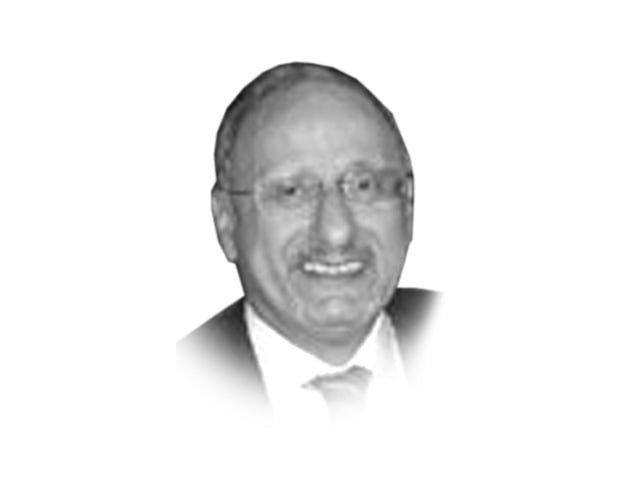Politics and memogate
The memogate threatens to turn into a a political trial of Zardari rather than being left to the court.

Similarly, it seemed that by now the barroom brawl that memogate quickly developed into would also have begun to ebb. But that has not happened. The fact is that nothing much will come out of it unless Mr Zardari’s footprints are all over the available evidence.
Ironically though, while Salala may recede from memory, memogate will not go away so soon because the politicians won’t allow that to happen. And it is because if a president can be accused of selling off his country, including its nuclear assets, to the Americans that would finally get the public on the streets demanding his head. Mr Nawaz Sharif knew that, hence his petition.
But that is not the only reason; there is another one. A president in Pakistan is supposed to be politically neutral. Mr Zardari, alas, is neither neutral nor has he been politically emasculated.
The trouble is that no one anticipated that Mr Zardari would become as powerful a president as he proved to be. The best that his opponents can do, therefore, since he enjoys a majority in parliament, is to give him a bad name and threaten to hang him or scare him into vacating the post.
But the hopes of Mr Zardari’s opponents may yet turn sour and their tactics may fail, particularly if the evidence that the Supreme Court-appointed sleuth is able to gather is not entirely convincing. There is, after all, an important distinction between judgments made on legal grounds and conclusions drawn on the basis of political suspicion and hearsay.
What we are about to witness, therefore, is a risky attempt at staging a political trial rather than leaving it to the court. The outcome of such a high-risk adventure will reverberate for a long time to come and may well change the face of politics in Pakistan. It would have been far more mature and sensible to tolerate Mr Zardari for a while longer and focus more on the next parliamentary elections which are just a year away.
The mere attempt to have an elected leader declared unpatriotic brings a blush of shame to the country as a whole. Regardless of the outcome, it has already poisoned politics in Pakistan.
The trouble with patriotism is that in the hands of the wrong people it conceals the foulest designs against the liberty of a people. Why place so much importance on a memo of dubious authenticity when we know that no government, especially one as weak and unpopular as that of Mr Zardari, could ever have implemented the raft of measures listed in the memo? Indeed, the slightest attempt to do so would have invited the very coup Mr Zardari allegedly wished to avoid.
That is why talk of treason and unearthing evidence from the memogate caper and the antics of two well-known sensationalists are completely misplaced. Besides, this is not the first time that the Americans have been clandestinely approached by a sitting government to prevent the military from staging a coup. So why treat it as something special, unlike anything before? Let’s not lose our sense of perspective and proportion.
Published in The Express Tribune, December 13th, 2011.















COMMENTS
Comments are moderated and generally will be posted if they are on-topic and not abusive.
For more information, please see our Comments FAQ